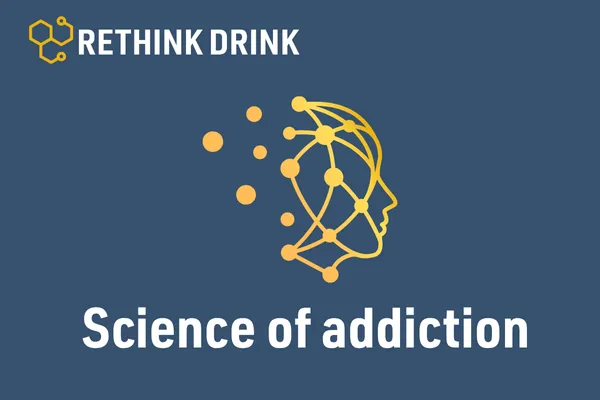
The Science of Addiction: Understanding Endorphins and Their Role in Alcohol Use
Key Takeaways
Addiction involves a complex interplay of brain chemicals, notably endorphins and dopamine.
Alcohol hijacks the brain’s reward system, leading to compulsive behaviour.
Endorphins play a crucial role in reinforcing addictive patterns.
Understanding the neuroscience behind addiction helps in crafting more effective recovery strategies.
Targeted treatments like the Sinclair Method work by blocking endorphin release to retrain the brain.
Understanding the science of addiction is crucial for anyone on the path to recovery or supporting a loved one through it. At the core of addiction lies a powerful biochemical mechanism driven by the brain’s natural reward system—most notably, endorphins. These feel-good chemicals play a pivotal role in reinforcing behaviours, and when substances like alcohol exploit this system, the result can be a cycle that’s difficult to break.
Let’s explore how addiction works on a neurological level, and how knowledge of this science can be leveraged for successful treatment.
What Are Endorphins and What Do They Do?
Endorphins are neurotransmitters produced by the central nervous system. Their primary function is to reduce pain and induce feelings of pleasure or euphoria. They’re often released during exercise, excitement, laughter, and—crucially—substance use.
Common triggers of endorphin release include:
Running or intense physical activity (the "runner’s high")
Eating favourite or comforting foods
Drinking alcohol
Laughing or engaging in joyful activities
When alcohol is consumed, it stimulates the release of endorphins in the brain, particularly in areas linked to pleasure and reward. This is what creates the initial “buzz” or high. The brain begins to associate drinking with these pleasurable sensations, forming a powerful connection that underpins addictive behaviour.
Addiction: A Hijacked Reward System
Our brains are wired to repeat behaviours that feel good—this is essential for survival. However, addictive substances like alcohol manipulate this system by flooding the brain with endorphins and dopamine.
Over time, the brain reduces its natural production of endorphins and becomes dependent on alcohol to generate these feelings. This is the crux of alcohol use disorder (AUD): the compulsive need to drink, not just to feel pleasure, but to avoid discomfort and emotional lows.
The Brain’s Cycle of Addiction
Alcohol triggers endorphin release – Feelings of pleasure and relaxation increase.
Dopamine reinforces the behaviour – Encouraging repetition of alcohol consumption.
Tolerance builds – More alcohol is needed to achieve the same effect.
Dependence sets in – The brain becomes reliant on alcohol for emotional regulation.
Breaking the Cycle: The Sinclair Method
One of the most promising treatments that targets the biological roots of addiction is the Sinclair Method (TSM). This method uses a medication called Naltrexone, which blocks endorphin receptors. By doing this, it dulls the pleasure response associated with drinking.
This approach, known as pharmacological extinction, allows individuals to gradually unlearn the association between alcohol and pleasure. Over time, drinking becomes less rewarding, making it easier to cut back or quit altogether.
You can learn more about this breakthrough treatment through the documentary One Little Pill, which explores the success of the Sinclair Method and shares real-life recovery stories.
How We Support Change Through Science
At Rethink Drink, we believe that understanding the science behind addiction empowers people to make lasting changes. We provide coaching and support for those pursuing recovery through the Sinclair Method, guided by up-to-date neuroscience and compassionate coaching.
Our approach is built around education, encouragement, and evidence-based methods to help clients regain control. Whether you're just starting out or exploring your options, our goal is to make the journey more informed and less intimidating.
When to Seek Help
Recognising the need for help is the first step toward recovery. If alcohol has become a coping mechanism or a daily crutch, it's time to rethink its role in your life. You're not alone, and support is available.
Book a free screening call today to explore your options and take the first step towards a healthier relationship with alcohol.


